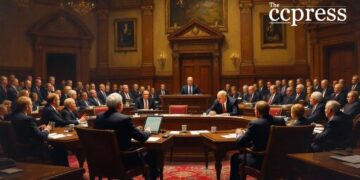- Main event, leadership changes, market impact, financial shifts, or expert insights.
- Uniswap’s App Store rank fell significantly.
- SEC concluded its investigation on Uniswap.

Uniswap’s ranking on the US App Store plummeted recently. Furthermore, the SEC investigation into Uniswap concluded with dropped claims. Uniswap Labs founder Hayden Adams confirmed on Twitter, citing these developments’ impact on the decentralized exchange.
Uniswap’s ranking and regulatory conclusions impact its market position and user perception. This change caused community discourse and scrutiny about DeFi protocols’ regulatory risks.
The Uniswap App Store identification has declined from 99th to 364th in a short period, reflecting potential user engagement issues. Hayden Adams addressed these changes, emphasizing that previous SEC claims against Uniswap Labs and its UNI token status have been dropped. The SEC once asserted Uniswap Labs operated as an unregistered entity, which has been clarified, indicating that neither the protocol nor its token is classed as a security. As a result, the immediate effects on the market included a 10% decline in the UNI token price and trading volumes spiking on exchanges like Binance, indicating short-term market volatility.
“The SEC (under the previous admin) tried to claim that Uniswap Labs operated an unregistered broker, exchange, and clearing agency, and issued an unregistered security. Those claims have now been dropped. Uniswap Labs is not a broker. The Uniswap Protocol is not an unregistered exchange or clearing agency or operated by Labs. UNI is not a security.” — Hayden Adams, CEO and Founder, Uniswap Labs
Financially, the UNI token experienced a decline, with increased volumes reflecting potential speculative activity amid regulatory clarifications. This situation underscores the ongoing uncertainty facing decentralized exchanges navigating legal complexities, described by Hayden Adams as “arbitrary enforcement.”
Regulatory scrutiny impacts DeFi, evidenced by Uniswap’s recent SEC investigation. Their conclusions may affect financial activities in this sphere by offering insights into how regulations will shape DeFi entities’ futures.
The broader implications involve potential adjustments in regulatory frameworks affecting the DeFi sector. Institutional participants like banks might intensify crypto involvement, reacting to regulatory developments as they adapt their strategies to comply with evolving industry norms.


























